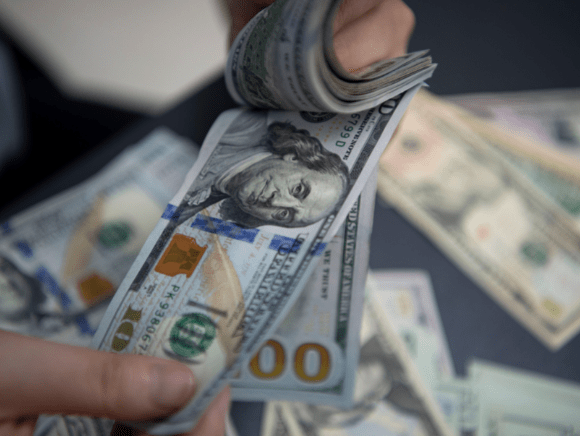
(Photo by Xu Jinbai/VCG via Getty Images)
Editor’s Note: This is part two of a two-part series focusing on Liberty Nation’s exclusive interview with Dr. Ron Paul.
Shallow, technical, or deep: Whatever shape the next recession takes, it will likely result in the US government responding with more fiscal stimulus and relief spending, exacerbating the nation’s problems, and kicking the can down the road. Until then, economists and market analysts are assessing the economic data to ascertain what type of downturn the United States can expect either in 2022 or within the next two years. But the severity and length may have to do with how Washington responds to consecutive quarterly contractions in the gross domestic product (GDP), says former Texas Republican Congressman Ron Paul in an interview with Liberty Nation.
A Path of Currency Destruction
In 2007, Dr. Ron Paul had predicted that the US was already in a recession. On the presidential campaign trail at the time, Paul’s colleagues, Sens. Mitt Romney (R-UT) and John McCain (R-AZ), laughed at the assertion. About a year later, the US slipped into one of the worst recessions on record. But it was not some magical guess, notes Paul. It is about understanding what the government and the Federal Reserve were doing at the time: intervention, printing, manipulating, and spending. Today, it is the same type of circumstance: the US central bank created money out of thin air ($9 trillion), and the federal government approved deficit-financed spending (several trillion), effectively distorting and destroying the economic landscape with malinvestment and inflation.
“I know there’s inflation because they’ve had QE [quantitative easing], they put all the money in the economy,” Dr. Paul told Liberty Nation. “So now you’re just looking at the results. When you manipulate the currency, you do have prices going up. But you also have the downturn. So, the downturn is in place.”
From the massive debt accumulation to the monetary inflation, the current situation is “historic,” and it will trigger a sharp correction that will be challenging to stop, the three-time presidential candidate added. The government will ultimately respond, and what they do will inevitably create distortions in the marketplace. Whatever happens, the politicians on both sides of the aisle will “pretend they’re going to take care of this mess that we’re in.”
Of course, the chief debate among the talking heads is whether the next recession will be short and sweet or prolonged and painful. For the host of “The Liberty Report,” it could be sharp and done rather quickly if the government got out of the way. However, if it is shallow, it will only be because Washington convinced enough of the public psychologically that conditions are better.
 Eventually, according to Paul, the astronomical amount of debt will need to be liquidated, which will be achieved through the destruction of the US dollar, triggering broad-based rampant price inflation.
Eventually, according to Paul, the astronomical amount of debt will need to be liquidated, which will be achieved through the destruction of the US dollar, triggering broad-based rampant price inflation.
“And what they really wanted was the diminishing of the debt,” averred Paul. “If you have 50% in inflation, you’ve just gotten rid of the real debt. You’ve reduced it by half. So that’s what they want. And so that’s how it’s gonna happen.”
A Strange Recession
Wells Fargo Investment Group believes the US is already in a recession. Bloomberg Economics purports that the odds of a recession are high in 2024. The International Monetary Fund (IMF) argues that a recession could narrowly be averted in 2022 and 2023. If the Federal Reserve Bank of Atlanta’s current GDPNow model estimate is correct and the US is in the middle of a recession, it is undoubtedly a strange bust cycle. The labor market is hot, inflation is running high, segments of the economy are slowing down, and spending is mixed. Perhaps the US will start this period of disappointment and uncertainty with a couple of recessions before sliding into a long-term bout of stagflation, comparable to what transpired in the 1970s and 1980s. Either way, this is how a system dependent on the state stimulus and central bank eternal money printing functions nowadays.
“The longer this pseudo standard works and the bigger the bubble gets, the worse the downturn will be,” said Paul.
Remember to check out the web’s best conservative news aggregator
Whatfinger.com — the #1 Alternative to the Drudge


